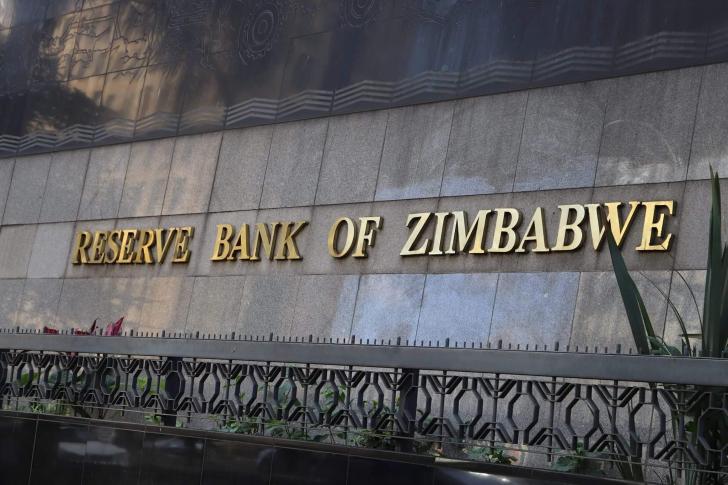News / National
Zimbabwe's central bank claims success in stabilising rate and inflation
04 Dec 2024 at 14:23hrs |
0 Views

The Reserve Bank of Zimbabwe (RBZ) has announced significant progress in stabilising the country's exchange rate and inflation following a series of monetary policy interventions, including a cumulative injection of US$150 million into the foreign exchange market.
In a statement released after the Monetary Policy Committee (MPC) meeting on December 3, 2024, the central bank outlined the positive effects of measures implemented since September.
The RBZ credited its measures with tightening liquidity and curtailing speculative activities in the foreign exchange market. The results, the bank said, include a marked stabilisation of the exchange rate and a reduction in inflationary pressures.
"The stability is reflected in the significant narrowing of the exchange rate premium and a deceleration of month-on-month inflation from 37.2% in October 2024 to 11.7% in November 2024," the statement said.
The inflation spike in October was attributed to a one-off depreciation of the Zimbabwe Gold (ZiG) currency against the US dollar in September. The RBZ expects inflation to stabilise at pre-October levels in the coming months.
Foreign currency inflows increased by 19.1%, reaching US$11.05 billion during the first 10 months of 2024, compared to US$9.27 billion in the same period last year. The RBZ attributed this growth to measures promoting greater participation in the interbank foreign exchange market, including a new policy requiring corporate tax payments in a 50:50 ratio of US dollars to ZiG.
Key Policy Resolutions
To sustain the current stability, the MPC resolved to maintain the policy rate at 35%, keep statutory reserve requirements for savings and time deposits at 15%, and for demand and call deposits at 30%. and enhance the efficiency of the interbank foreign exchange market's price discovery mechanism.
Additionally, the RBZ introduced a Targeted Finance Facility (TFF) to support the productive sector while navigating tight liquidity conditions. Details of the facility's implementation will be shared with banks soon.
The RBZ expressed optimism that inflation expectations will remain anchored and exchange rate stability will persist, supported by robust foreign currency inflows and continued adherence to tight monetary policies.
The MPC reiterated its commitment to monitoring developments and adjusting its stance to ensure macroeconomic stability while balancing the needs of the productive sector.
In a statement released after the Monetary Policy Committee (MPC) meeting on December 3, 2024, the central bank outlined the positive effects of measures implemented since September.
The RBZ credited its measures with tightening liquidity and curtailing speculative activities in the foreign exchange market. The results, the bank said, include a marked stabilisation of the exchange rate and a reduction in inflationary pressures.
"The stability is reflected in the significant narrowing of the exchange rate premium and a deceleration of month-on-month inflation from 37.2% in October 2024 to 11.7% in November 2024," the statement said.
The inflation spike in October was attributed to a one-off depreciation of the Zimbabwe Gold (ZiG) currency against the US dollar in September. The RBZ expects inflation to stabilise at pre-October levels in the coming months.
Foreign currency inflows increased by 19.1%, reaching US$11.05 billion during the first 10 months of 2024, compared to US$9.27 billion in the same period last year. The RBZ attributed this growth to measures promoting greater participation in the interbank foreign exchange market, including a new policy requiring corporate tax payments in a 50:50 ratio of US dollars to ZiG.
Key Policy Resolutions
To sustain the current stability, the MPC resolved to maintain the policy rate at 35%, keep statutory reserve requirements for savings and time deposits at 15%, and for demand and call deposits at 30%. and enhance the efficiency of the interbank foreign exchange market's price discovery mechanism.
Additionally, the RBZ introduced a Targeted Finance Facility (TFF) to support the productive sector while navigating tight liquidity conditions. Details of the facility's implementation will be shared with banks soon.
The RBZ expressed optimism that inflation expectations will remain anchored and exchange rate stability will persist, supported by robust foreign currency inflows and continued adherence to tight monetary policies.
The MPC reiterated its commitment to monitoring developments and adjusting its stance to ensure macroeconomic stability while balancing the needs of the productive sector.
Source - onlkine
Join the discussion
Loading comments…



























